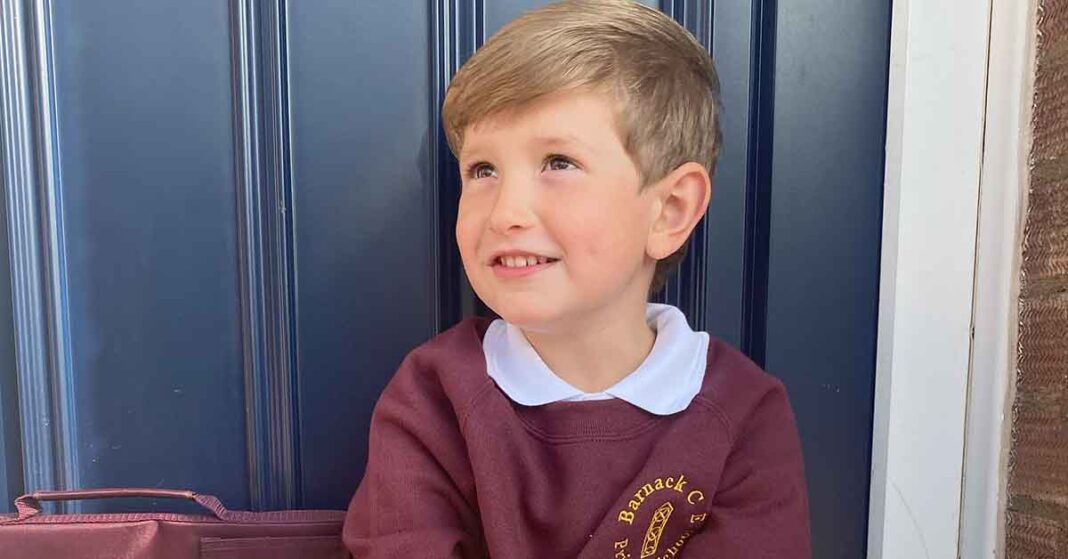[Trigger Warning]
As we reported last week, an inquest jury is hearing testimony from Benedict Blythe’s teacher, Jenny Brass, about the five-year-old’s sudden collapse due to a severe allergic reaction. On December 1, 2021, Benedict, described as “the smartest kid in my class,” had been sick twice that morning but showed no obvious signs of the food-induced anaphylaxis that would later prove fatal. Brass, who was his reception teacher at Barnack Primary School, recounted that Benedict was “laughing and joining in” during a phonics lesson before morning break.
After returning from the playground, Benedict unexpectedly vomited while sitting in his designated ‘carpet space.’ A teaching assistant cleaned him up and read him a book, during which he chatted normally. Brass observed he looked “a little unwell and sorry for himself” and noted some redness above his lips. He vomited a second time, prompting Brass to take him outside.
While seated outside the classroom, Brass recalled Benedict “was chatting about his advent calendar when he suddenly went grey and floppy.” One of his two epinephrine auto-injectors was administered “within two to three minutes,” and a second “five to 10 minutes afterwards,” by which point a teaching assistant was performing CPR.
Earlier that morning, Brass had poured oat milk, supplied by Benedict’s parents due to his severe allergic reactions to cow’s milk, into his lidded cup. Benedict, however, said he didn’t want the oat milk and was allowed to pour it away at the classroom sink. Brass admitted she did not watch him do this and couldn’t confirm if he had drunk from the cup on the way to the sink. Accounts have varied regarding whether Benedict consumed the milk, with school staff stating he had not, though police body camera footage captured Brass telling an officer “he didn’t really touch much of the milk.”
Brass also highlighted the differences in size, shape, and color between Benedict’s oat milk carton and another child’s lactose-free milk (which contained dairy allergens), both of which were clearly labeled with the children’s names. The possibility of allergens in a biscuit Benedict ate during break was ruled out by earlier evidence from McVitie’s. Brass, who has suffered from PTSD as a result, emphasized the importance of school to Benedict and expressed a need for greater support for teaching staff who experience similar tragedies. “Benedict is still in my thoughts,” she stated.
Professor Alan Fletcher, an emergency medicine consultant, testified that severe allergic reactions and anaphylaxis can have an extremely rapid onset, describing it as “an exponential change” and a “cascade” within 60 seconds to “a small number of minutes.” He explained that when Benedict became “pale and floppy,” his body was overwhelmed, and blood circulation had ceased. At this point, an epinephrine auto-injector into the thigh muscle would have been ineffective due to the lack of blood flow.
Fletcher stated, “The point that it would have worked was, on the balance of probabilities, the point he was conscious and breathing and at the point he went floppy it would not have worked.” He elaborated that “Children’s circulation falls off a cliff in cardiac arrest. It happens rapidly. In seconds.” He further explained that while CPR could help keep oxygenated blood moving to vital organs after cardiac arrest, the only antidote to anaphylaxis at that stage would be oxygen, intravenous fluid, and intravenous epinephrine, administered in a hospital within 10 minutes of collapse.
“Basic life support on its own will not work,” Fletcher concluded. He also clarified that general symptoms like vomiting and redness of the lips are “non-specific” and not necessarily indicators that would prompt immediate epinephrine administration, unlike clear signs of airway swelling. The inquest, which will continue, has heard evidence from Benedict’s parents, school staff, and medical specialists, with a representative from the Department for Education expected to testify.





